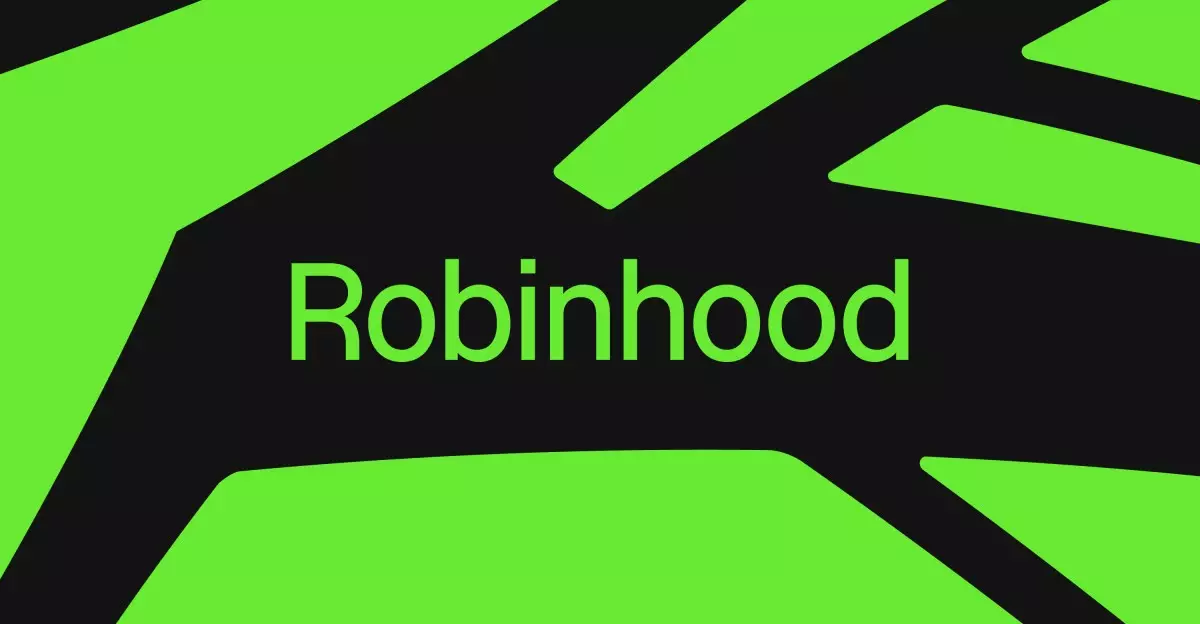Robinhood, traditionally known for its user-friendly investing platform, is paving its way toward comprehensive financial services with its recent announcement. The company’s aspiration to introduce a wholly online banking platform, dubbed Robinhood Banking, particularly targeted at Gold subscribers, marks a significant pivot from merely being a brokerage to a robust financial ecosystem. This progression is more than just an addition to their offerings; it’s a bold statement about the future of banking and investing, aiming to reshape the very notion of personal finance.
Features That Challenge Traditional Banking
While the announcement has generated buzz, there are noteworthy aspects that set Robinhood’s banking services apart from conventional banks. One standout feature is the enticing 4% annual percentage yield (APY) on deposits, a rate that would make traditional banks green with envy. By offering a substantial return on savings, Robinhood is not merely competing on services but is also positioning itself as a viable alternative for customers looking for the best return on their money.
Moreover, the promise of FDIC insurance up to $2.5 million through a third-party bank—Coastal Community Bank—is an innovative approach to safeguard customer funds. This method of “pass-through” insurance underscores not only the necessity of security in banking but Robinhood’s effort to provide assurance where traditional banks might fall short. The inclusion of features such as on-demand cash delivery—a service often reserved for luxury banking—exemplifies Robinhood’s commitment to convenience in the digital age.
Accessibility and Inclusivity in Banking
Robinhood’s move into banking also signals a commitment to inclusivity. With options for individual and joint accounts, as well as the unique offering of children’s accounts, the platform encourages financial literacy from a young age. Such an approach resonates with modern consumers, who increasingly prioritize financial education and management as part of their personal growth and family planning. The accessibility of these features makes banking not only easier but also more appealing to a broader demographic.
In a world where many feel alienated by traditional banking institutions, Robinhood’s approach feels refreshingly consumer-centric. As more people seek to manage their finances on digital platforms, Robinhood’s entry into this space reflects an understanding of contemporary needs, spotlighting the demand for seamless user experiences and innovative offerings.
The Wealth Management Frontier
In addition to banking, Robinhood is rolling out Robinhood Strategies, an advanced wealth management tool that further cements its role as an all-in-one financial hub. By introducing customized investment opportunities, such as actively managed funds at a minimal fee, Robinhood is not only diversifying its product range but actively engaging users in strategic financial planning. This effort goes beyond mere investing; it’s about empowering users with knowledge and actionable strategies without the typical high costs associated with wealth management.
Moreover, the upcoming introduction of an AI-powered investment tool called Cortex reflects Robinhood’s ambition to integrate cutting-edge technology into personal finance. By providing insights into market dynamics and investment opportunities, this tool has the potential to democratize investment knowledge that was once the sole purview of financial advisors.
Critiquing the Shift: Risks and Considerations
While these developments are intriguing, they come with inherent risks that warrant consideration. With tremendous growth comes the responsibility of maintaining user trust and security. The transition from a trading platform to a comprehensive financial service provider could overwhelm Robinhood if not managed adeptly. Additionally, regulatory scrutiny is only likely to intensify as the company expands its financial services, and navigating compliance could divert resources from innovation.
Furthermore, Robinhood’s history of issues concerning trading halts and system outages raises flags. Users will rightfully inquire whether the same platform that faced criticism during volatile market periods will handle the complexities of banking equally well or if it risks repeating past mistakes.
As Robinhood ventures deeper into the financial services arena, it does so against a backdrop of heightened expectations and skepticism. The company’s proactive steps toward creating a cohesive digital financial ecosystem are commendable but come with strings attached—namely, the requirement for absolute reliability and transparency.
A New Era for Retail Finance
Robinhood’s expansion strategy is revealing a paradigm shift in retail finance. By integrating banking, investment, and wealth management into a single platform, the company is arguably setting a new standard for what consumers should expect from their financial institutions. As the digital finance landscape evolves, only time will tell how successful Robinhood will be in fulfilling these lofty ambitions and whether it will indeed revolutionize the very fabric of personal finance.

